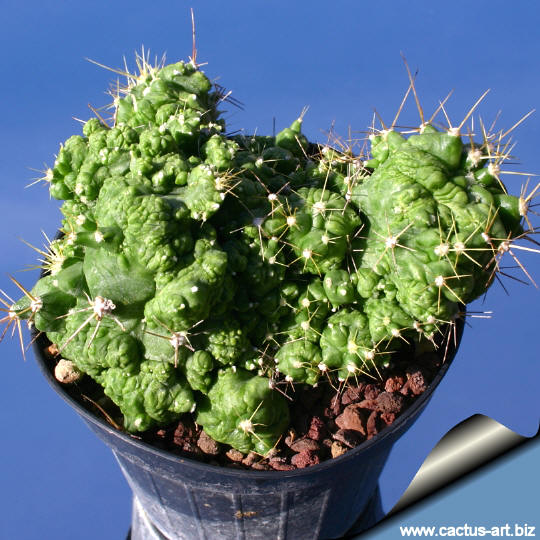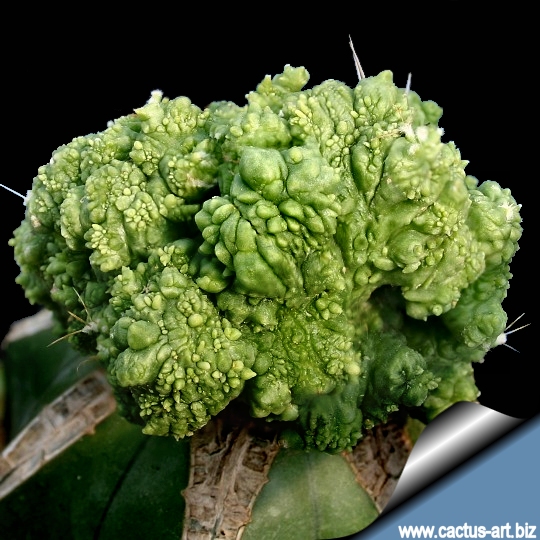|
|
|

Ferocactus echidne forma mostruosa
This cultivar shows many growing
variations, with different crested, monstrous
and normal shapes.
This plant is very rare in collection and highly priced.
|
 |
 |
 |
 |
|
. |
 |
 |
|
Propagation: By vegetative propagation
grafting or stem cuttings from adult plants.
|
|


Advertising
|
|
|
|
|
Family:
Cactaceae
(Cactus
Family)
Scientific name:
Ferocactus echidne
(A. P: de Candolle) Britton & Rose 1922
Forma mostruosa
Origin:
Garden origin (Nursery
produced cultivar)
Conservation status: Listed in
CITES appendix 2.
|
|
Description: It forms large low
clusters of firm, rubbery-textured
green tangled, monstrous
stems.
Stem: The stem surface is naked or with a variable quantity of
spines or woolly areoles, and the plant looks more like
some non-cactus
succulent than a
cactus. Sometimes it will have a normal
"patch" and remain mostly monstrous. The ribs (if present) are slender
acute and not clearly tuberculated, but the monstrous areas are bumped
and strangely corrugated.
Spines: Amber coloured, thin aciculate.
Central spine: 1 erect 2-5 cm long.
Radial spines: 4-9 radiating shorter than the central.
Flowers: Not known.
|
|
|
|

The graft can be easily removed and rooted.

Cultivation:
It is a fairly easy plant to grow both grafted or in its own roots.
Use very draining soil, water during the aestival growth
cycle (this plant need plenty of water) But needs to be avoided
wetting the bodies of these plants while they are in sunlight. A wet
cactus in the sun light can cause sun burning which can lead to scares
or even fungal infections and death.
Needs full sun but during the summer it is best to keep the
plants outside partially shaded where the temperature can rise to over
30 C with no harm to the plant. Furnish good drainage and use a an open
and free draining mineral compost that allows therefore roots to breath. Keep dry at 10°C in winter,
but can tolerate sporadic light frost.
Feeding may not be necessary at all if the compost is fresh then, feed
in summer only if the plant hasn't been repotted recently. Do not feed
the plants from September onwards as this can cause lush growth which
can be fatal during the darker cold months.
|
|